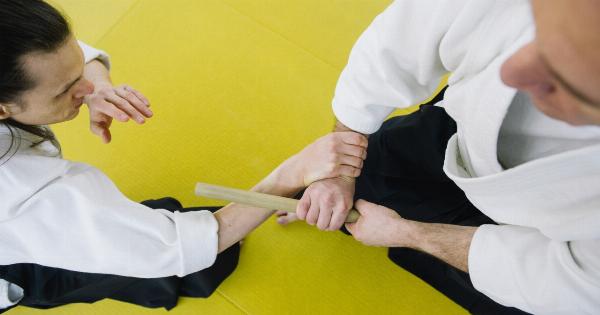In today’s fast-paced world, stress has become a common element in our daily lives. Whether it’s due to work pressure, financial burden, or personal struggles, stress can take a toll on our mental and physical well-being.
Additionally, maintaining self-discipline can seem like an uphill battle in the face of constant distractions and temptations. However, there is a secret strategy that can help you effectively unload stress and boost your self-discipline. In this article, we will delve into this strategy and explore its benefits.
The Importance of Managing Stress
Before diving into the secret strategy, it’s crucial to understand why managing stress is essential. High levels of stress can have detrimental effects on our health, relationships, and overall quality of life.
It can lead to anxiety, depression, insomnia, and even chronic illnesses such as cardiovascular diseases. Moreover, stress negatively impacts our decision-making abilities, making it harder to maintain self-discipline and make rational choices.
Understanding Self-Discipline
Self-discipline refers to the ability to control and regulate oneself, particularly in the face of temptations and distractions.
It plays a significant role in achieving personal and professional goals, as it helps us stay focused, motivated, and persistent. Without self-discipline, it becomes challenging to make progress, accomplish tasks, and cultivate healthy habits.
The Secret Strategy: Mindfulness Meditation
Among the various techniques available for managing stress and boosting self-discipline, mindfulness meditation stands out as a powerful and effective approach.
This ancient practice involves being fully present and aware of the present moment, without judgment. By incorporating mindfulness meditation into your daily routine, you can experience a wide range of benefits that directly impact stress levels and self-discipline.
Mindfulness Meditation and Stress
Through mindfulness meditation, you can unload stress by developing a sense of awareness and detachment from stressful thoughts and situations.
This practice helps you cultivate a non-judgmental attitude towards stressors, making it easier to respond with calmness and clarity rather than reacting impulsively. Regular mindfulness meditation also activates the body’s relaxation response, reducing the production of stress hormones and promoting a sense of overall calmness.
Mindfulness Meditation and Self-Discipline
Building self-discipline requires cultivating focus, resilience, and the ability to resist distractions. Mindfulness meditation trains the mind to sustain attention on the present moment, enhancing focus and concentration.
By becoming more aware of your thoughts, emotions, and bodily sensations through meditation, you can gain better insight into your habitual patterns and triggers for self-discipline failure. This awareness empowers you to make conscious choices and respond to temptations with greater willpower.
The Process of Mindfulness Meditation
Now that you understand the benefits of mindfulness meditation for stress unloading and self-discipline, let’s explore the step-by-step process of practicing this technique:.
1. Find a Quiet and Comfortable Space
Choose a peaceful environment where you can sit comfortably without disturbances. This space can be indoors or outdoors, as long as it allows you to focus and relax.
2. Assume a Comfortable Posture
Sit in a position that supports alertness and relaxation. You can sit cross-legged on the floor, on a cushion, or on a chair. Make sure your back is upright but not rigid, and your hands rest comfortably on your lap or thighs.
3. Focus on Your Breath
Start by bringing your attention to your breath. Notice the sensation of the breath as you inhale and exhale. You can focus on the rise and fall of your abdomen or the feeling of air passing through your nostrils.
4. Be Present and Non-Judgmental
As thoughts, emotions, or sensations arise, acknowledge them without judgment and let them go. Keep redirecting your attention to the present moment and the sensations of your breath. If your mind starts to wander, gently bring it back to your breath.
5. Gradually Lengthen Your Sessions
Start with short meditation sessions, such as five or ten minutes, and gradually increase the duration as you become more comfortable. Consistency is key, so aim to practice mindfulness meditation daily.
6. Seek Guidance and Support
If you’re new to mindfulness meditation, you may find it helpful to join a meditation group or seek guidance from experienced practitioners. Books, online resources, and mobile apps can also provide valuable guidance and support.
The Long-Term Effects
By integrating mindfulness meditation into your life, you can experience lasting effects on stress reduction and self-discipline.
Consistent practice cultivates a more resilient mindset, improves emotional regulation, and enhances your ability to handle challenging situations. You’ll find it easier to stay focused, make healthier choices, and navigate through obstacles with greater ease. These benefits extend to various aspects of your life, including relationships, work, and personal well-being.
Conclusion
Stress and self-discipline are intertwined challenges that many of us face on a daily basis. However, through the practice of mindfulness meditation, you can unload stress effectively and boost your self-discipline.
By incorporating the step-by-step process mentioned above, you can experience the numerous benefits of this ancient practice, leading to a healthier, more balanced, and fulfilling life. Make a commitment to yourself today and embark on this transformative journey to unload stress and cultivate self-discipline.































